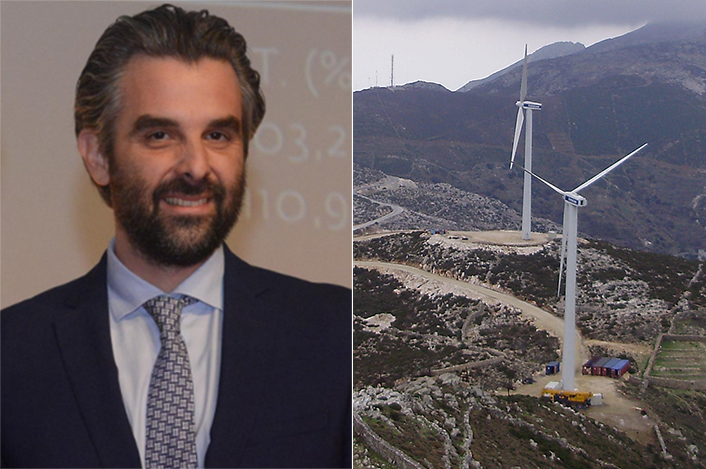The prices achieved in the first auction, concluded in July, were "surprising", with the lowest successful bid of €68.18/MWh well below the €90/MWh ceiling price, Zangas explained.
Trade bodies such as the Hellenic Wind Energy Association (HWEA) and WindEurope claimed these results reflected an increased confidence in the market.
Zangas, meanwhile, said financing for energy projects had always been available, even in 2013 and 2014 when the financial crisis squeezed hardest, and Greece’s macroeconomic outlook is "improving substantially".
However, following the tender, he added: "There have been mixed reactions from the market. Obviously some investors are a bit sceptical, but optimistic that they can support projects in a cost-effective way.
"We have others that are celebrating because of the low price of energy."
Investors may not get as much for their money as they might expect elsewhere.
Nevertheless, "the cost of financing is improving", Zangas noted, but "it is still a lot more expensive than other countries in the EU".
Auction design
Despite the low prices of the first auction being "good for the consumer", Zangas was cautious about the scheme’s continuing sustainability — not least because it was undersubscribed.
The tender awarded 161MW from 176MW available.
Greece is to hold eight auctions in total by the end of 2020: three yearly technology-specific auctions for both wind and solar, and two technology-neutral tenders, with the first scheduled for 2019.
"The RAE (Greek Regulatory Authority for Energy) and Ministry of Energy has to be flexible," he said.
"They have to see how the auctions are doing, how the prices are going, how under- or oversubscribed the auctions are, and they have to have the readiness to make whatever rule changes would have a positive effect."
For example, following tenders that were deemed advantageous to community projects in Europe’s biggest wind market, Germany, its energy regulator (BNA), amended the rules — including those allowing their developers to bid for projects not yet permitted and granting them a longer implementation period than the window for larger developers — to encourage parity between developers.
The BNA also adjusts feed-in tariff (FiT) rates for future auctions when the German onshore cap is exceeded in an attempt to lower costs overall for different renewable energy sources.
"This is the type of flexibility we are talking about," Zangas added.
"Germany has had positive and negative auctions, just as we have had positive and negative auctions all around the world.
"In Germany, specifically, there have also been very nice levellers that have been used to increase or decrease capacity according to what the regulator wanted in terms of megawatts that went into that auction."
Germany also includes technology-neutral tenders in its auction schedule.
In its first auction to pit wind against solar, concluded in April 2018, solar PV took the entire 200MW allotment, undercutting all of the 18 proposed wind projects.
Zangas was understandably ambivalent about the technology-neutral auctions planned in Greece: "We think that the technologies are complementary, not competitive."
"We don’t believe that they bring down prices of energy," he added. "We can do this just as well — if not better — with technology-specific auctions."
Sunny outlook
With a first auction carried out smoothly, early signs of economic recovery and Greece still needing additional capacity to meet its renewable energy targets, Zangas is optimistic about the future of the Greek market: "I think that from a macroeconomic perspective the country is improving. I think the market is maturing.
"We see lots of experienced players coming into the country.
"Assuming that the authorities show the right flexibility to adapt to what these first few auctions bring to the market, I’m really optimistic for the future."
Click here for more more information about tenders around the world using our new Tender Watch page

.png)


.png)










